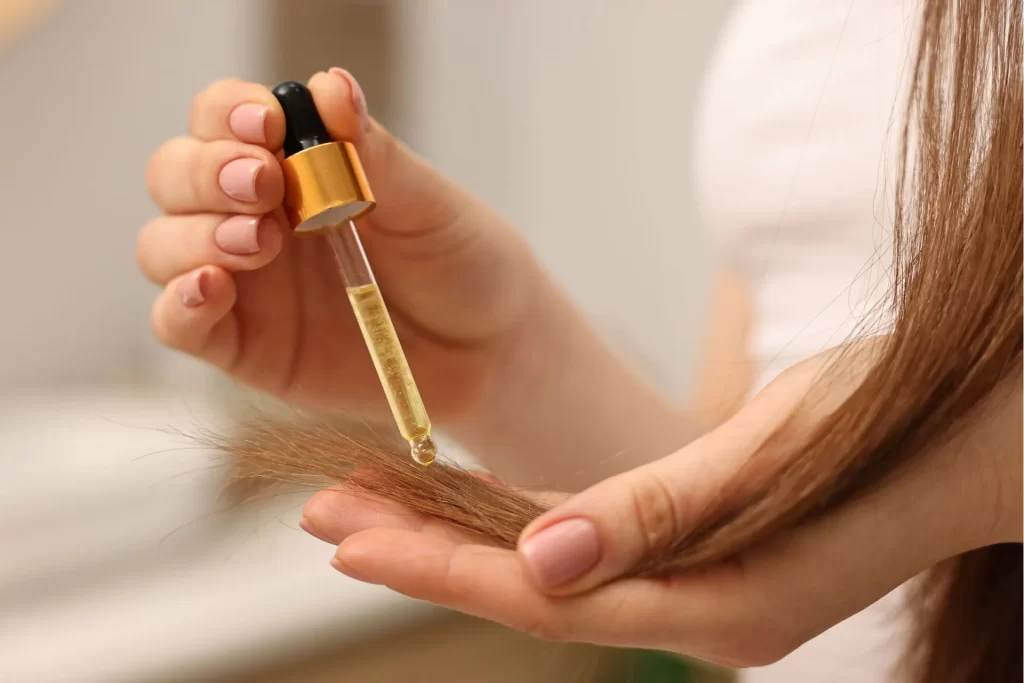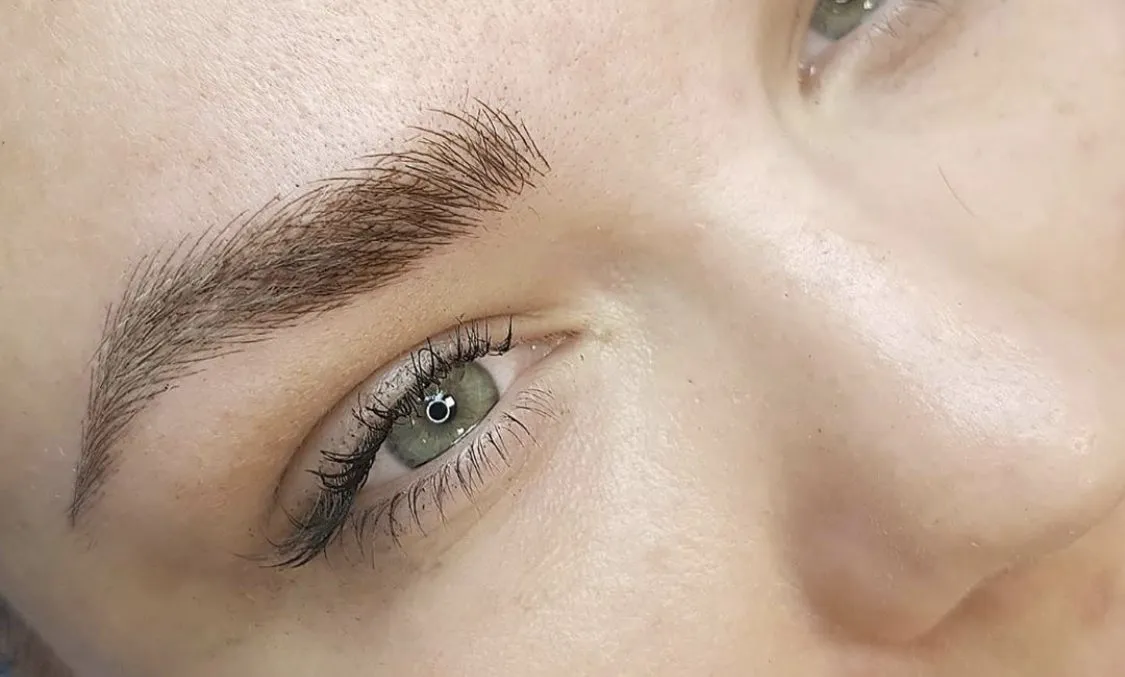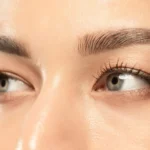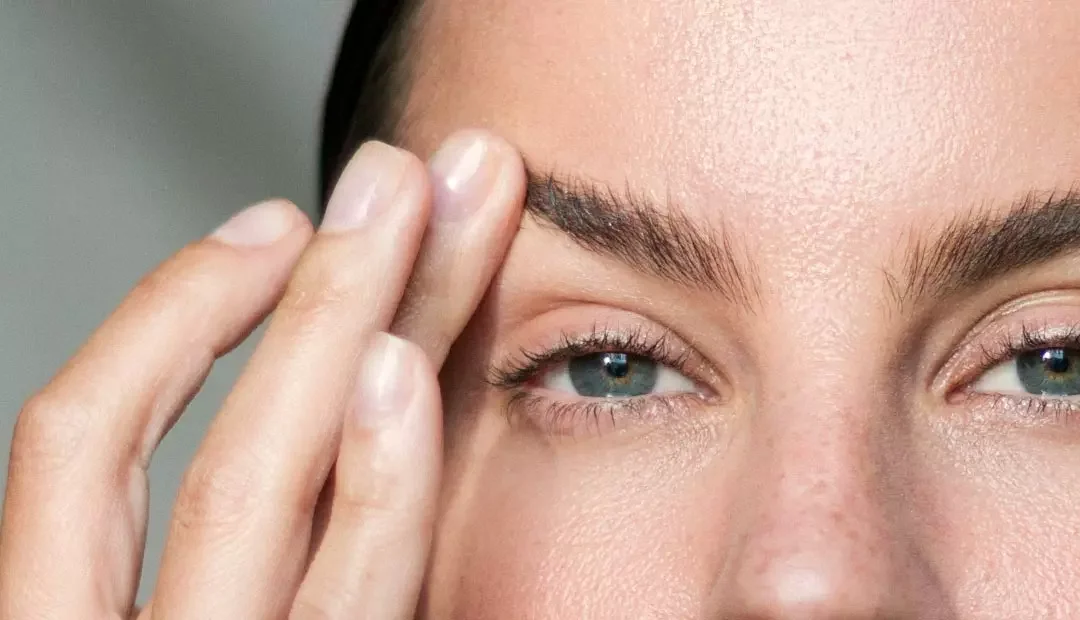Table of Contents
ToggleCarrier oils, also known as base oils, play an essential role in hair care routines, providing nourishment, moisture, and a natural solution for scalp health. Used with essential oils or alone, carrier oils for hair can support hydration, reduce breakage, and even promote healthier hair growth.
This guide explains what is carrier oil, the best carrier oils for hair growth and thickness, and how to choose the right one for your hair type.
What is a Carrier Oil for Hair?
A carrier oil for hair is a vegetable oil extracted from the fatty parts of plants, such as seeds, nuts, or kernels. These oils are known for their gentle properties, making them ideal for use directly on the skin or hair. They act as “carriers” for essential oils, which need to be diluted to prevent irritation, and are also effective on their own for nourishing and conditioning hair.
So, what are carrier oils for hair exactly? They are base oils for hair that deliver essential fatty acids, vitamins, and antioxidants to your scalp and strands. This helps strengthen hair, reduce dryness, and enhance shine and elasticity.
These oils are particularly beneficial because they contain essential fatty acids, vitamins, and antioxidants, all of which support hair and scalp health. They serve as a base oil for hair care, providing the nutrients necessary to strengthen hair, reduce dryness, and enhance overall appearance.
Best Carrier Oils for Healthy Hair
There are many carrier oils available, each with unique benefits for hair. Here are some of the most popular options:
Coconut Oil
Coconut oil is well-known for its ability to deeply penetrate the hair shaft, providing intense moisture and protection against breakage. It’s rich in lauric acid, which helps reduce protein loss in hair, making it ideal for those with dry or damaged hair.
- Best For: Thick, coarse, or dry hair types.
- How to Use: Apply to hair as a pre-wash treatment or as an overnight conditioning mask.
For more information on how coconut oil helps your hair, feel free to check out our comprehensive article.
Argan Oil
Often referred to as “liquid gold,” argan oil is packed with antioxidants, vitamin E, and fatty acids. It helps moisturize the scalp, reduce frizz, and add shine, making it one of the best carrier oils for hair.
- Best For: Frizzy, damaged, or color-treated hair.
- How to Use: Apply a few drops to damp hair or use as a leave-in conditioner to add shine.
Jojoba Oil
Jojoba oil is unique because it closely resembles the natural sebum produced by the scalp, making it an excellent oil for balancing scalp oils. It’s lightweight, easily absorbed, and helps moisturize without leaving a heavy residue.
- Best For: Oily or sensitive scalps; fine or thin hair.
- How to Use: Massage a small amount into the scalp to regulate sebum production, or apply to ends for hydration.
Castor Oil
Known for its thick consistency, castor oil is a popular choice for promoting hair growth. It contains ricinoleic acid, which can improve scalp circulation, supporting a healthy environment for hair follicles.
- Best For: Thinning hair or those looking to stimulate growth.
- How to Use: Dilute with a lighter oil (like jojoba) and massage into the scalp to encourage hair growth.
Sweet Almond Oil
Sweet almond oil is gentle and nourishing, containing vitamins A, E, and B7 (biotin), which support hair strength and shine. It’s lightweight and helps smooth the hair, reducing breakage and frizz.
- Best For: All hair types, especially dry and dull hair.
- How to Use: Apply as a smoothing treatment or as a lightweight leave-in conditioner.
How Other Oils for Hair Growth Can Help You!
How to Choose the Best Carrier Oil for Hair
Selecting the best carrier oil for hair growth depends on individual hair type, scalp condition, and hair goals. Here’s a guide to help you find the right one:
- Consider Your Hair Type: For thick or curly hair, heavier oils like coconut or castor oil provide deep hydration. Finer hair may benefit from lightweight options such as jojoba or almond oil.
- Scalp Condition: If you have a dry scalp, oils like argan and sweet almond provide moisture without clogging pores. For oily scalps, jojoba oil can balance natural oils.
- Hair Goals: For growth, castor oil is commonly used due to its stimulating properties. For shine and smoothness, argan or coconut oil can enhance your hair’s natural luster.
Benefits of Carrier Oils for Hair
- Moisturizing and Conditioning: Carrier oils deeply moisturize hair, helping to prevent dryness, split ends, and breakage.
- Nourishing Scalp Health: Many carrier oils contain anti-inflammatory and antimicrobial properties that soothe the scalp, reducing dandruff and irritation.
- Protection from Damage: Carrier oils can create a protective barrier, shielding hair from environmental stressors and reducing protein loss, especially during styling and washing.
- Enhancing Hair Growth: Some carrier oils, like castor oil, can stimulate blood flow to the scalp, creating an environment that supports hair growth.
How to Use Carrier Oils for Hair
- Pre-Wash Treatment: Applying a carrier oil to dry hair before washing can help reduce protein loss and protect hair from the drying effects of shampoo.
- Scalp Massage: Massaging oil into the scalp boosts circulation and can support healthier hair growth. Leave it on for 15–30 minutes, then rinse.
- Leave-In Conditioner: For added shine and frizz control, apply a small amount of carrier oil to the ends of damp hair.
- Oil Blends: Mixing carrier oils with essential oils (such as rosemary or peppermint) can enhance their effectiveness. Always dilute essential oils with a carrier oil to avoid irritation.
DIY Oil Blend for Hair Health
Creating your own blend with carrier oils allows you to customize it to your hair needs. Here’s a simple recipe:
Ingredients:
- 1 tablespoon of coconut oil
- 1 tablespoon of argan oil
- 5 drops of rosemary essential oil (optional)
Instructions:
- Mix oils in a small bowl until well blended.
- Apply to the scalp and hair, focusing on the ends.
- Leave on for 30 minutes or overnight, then rinse thoroughly.
This blend combines the hydrating properties of coconut oil, the shine-enhancing benefits of argan oil, and the growth-stimulating effects of rosemary. To maximize results, combine your carrier oil with ingredients that match your hair needs. For example, mixing Batana oil with shampoo can make the application process easier and more effective.
Precautions for Using Carrier Oils
Carrier oils are intended for external use only. They should not be ingested and must be kept out of reach of children to avoid accidental ingestion. Before using any carrier oil, perform a patch test on the inner arm or another less sensitive area of skin, applying a small, dime-sized amount. If there’s no reaction within 48 hours, the oil can be considered safe to use.
Most carrier oils are safe for topical application when used responsibly; however, some people may experience irritation, allergic reactions, rashes, or other side effects. If an allergic reaction occurs, stop using the oil and seek medical advice from a doctor, pharmacist, or allergist for appropriate care. To avoid potential side effects, consult with a healthcare professional before use.
Carrier oils should never be applied near the eyes, inside the nose or ears, or on other sensitive skin areas.
Our Take on Carrier Oils for Hair
Using a carrier oil for hair can significantly improve hair texture, strength, and overall health. From deep conditioning to promoting scalp balance, these oils offer natural, effective solutions tailored to individual needs. Whether you’re aiming to enhance shine, stimulate growth, or protect against damage, there’s a base oil for hair that’s perfect for you.
If you’re new to what is a carrier oil for hair, start with versatile options like jojoba or coconut oil and see how your hair responds. With consistent use, these oils can lead to healthier, more resilient hair that’s both stronger and more vibrant.
For those seeking a more targeted solution to hair loss, consider speaking with Dr. Kopelman. This father-son team brings over 35 years of combined experience in hair restoration, specializing in personalized treatments for each client. Dr. Kopelman’s expertise can help you find the right solution tailored to your unique needs.
Schedule a consultation today to explore your options and take the first step towards achieving your hair goals.
























